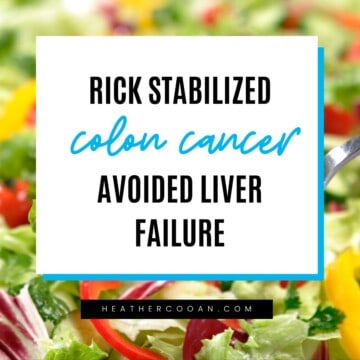According to the most recent data available, nearly 42% of the U.S. population is deficient in vitamin D. (1) This prohormone belongs to a category of fat-soluble vitamins, and is referred to as the ‘sunshine vitamin’ because the primary source of vitamin D is sun exposure.

Vitamin D plays a crucial role in the body and vitamin D deficiency has been linked to plenty of dysfunctions. So, to make sure your levels of vitamin D are sufficient, let’s take a look at how the body can let you know you need to catch some rays or pick up a high-quality vitamin D supplement!
QUICK REFERENCE
Aching Muscles
Vitamin D plays an important role in muscle protein synthesis and the concentration of calcium in our bloodstream, an essential factor for both the development of strong muscles and proper muscle contraction. This process is mediated by nuclear vitamin D receptors found directly in muscle tissue. Maintaining proper vitamin D levels has been linked to improved proximal muscle strength, resulting in everything from better coordination to a reduced risk of falls and fractures in the elderly. (2)
If you haven’t just come from a gym sesh or started a new training program and you’re experiencing non-exertion-related muscle pain that appears to be unaffected by treatment, it could be a symptom of low vitamin D levels.

Painful Bones
Because of childhood rickets and osteomalacia in adults, two conditions characterized by soft, weak bones and painful malformations, vitamin D has long been associated with bone health. But, still today, painful bones can be a good indicator that you’re not getting enough of the sunshine vitamin.
Vitamin D deficiency leads to decreased calcium absorption, which causes the bones to release calcium stores into the bloodstream. Continuous bone turnover and calcium resorption weaken the bones and increase the risk of fractures and osteoporosis. (3)
Since it can be hard to pinpoint the difference between muscular and bone pain, muscle pain tends to be more localized, and felt in one specific area, and bone pain tends to be more diffuse, causing a deeper pain felt over a larger area.
Sleep Disturbances
We all know how important a good night’s rest is, but new research is showing just how important vitamin D is in making sure you catch those Z’s. Many of us suffer from sleep disorders, including:
- Insomnia
- Obstructive Sleep Apnea (OSA)
- Chronic Fatigue
- Restless Legs Syndrome (RLS)
- Sleep deprivation
- Excessive Daytime Sleepiness (EDS)
And, our vitamin D levels may play a role. Though the researchers note that more studies with larger sample sizes are needed, a recent systematic review found that vitamin D supplementation can help improve sleep quality and may be a relatively easy and inexpensive way to treat various sleep disorders, helping you fall asleep and stay asleep more easily. This is likely due to vitamin D receptors in the areas of the brain responsible for regulating sleep, and whether or not those receptors have sufficient levels of vitamin D to function optimally. (4)
Fatigue
An often overlooked symptom of vitamin D deficiency is fatigue. Because of our fast-paced lifestyles and generally high-stress levels, we often attribute low energy levels and feeling run down to other things going on in our lives.
But experiencing any of these fatigue-related symptoms may be a sign that your vitamin D levels aren’t what they should be.
- chronic tiredness or sleepiness
- slowed responses
- impaired decision-making
- poor concentration or inability to pay attention to a specific task
- low motivation
- headache
- dizziness
- loss of appetite
After noticing that participants in vitamin D-related studies felt that supplementation improved their energy levels and reduced fatigue, a study was published in 2016 that specifically looked at vitamin D and fatigue. The study consisted of 120 people who had both vitamin D deficiency and self-reported symptoms of low energy, but who were otherwise healthy. After 4 weeks, the group receiving vitamin D supplementation reported a significant decrease in fatigue-associated symptoms over the placebo group, and improvement in participant’s fatigue scores correlated with a rise in serum vitamin D levels. (5)

Depression and Low Mood
Vitamin D has been shown to be important to our brain health and closely tied to our moods, so another sign that you may have insufficient levels of vitamin D can be depression and lower moods. You may have heard about SAD, or seasonal affective disorder, sometimes called the winter blues. This disorder is linked to reduced exposure to sunlight, and decreasing levels of vitamin D. (6)
Research suggests that vitamin D supplementation improves sleep, boosts mood, and lessens the severity of depression, however, researchers have yet to determine if improved levels of serum vitamin D directly improve mood by increasing the availability of serotonin and oxytocin, or if the potential positive effects occur indirectly due to improvements in sleep quality and timing. (7, 8)
Hair Loss, Skin Problems, and Slow Healing Wounds
With both anti-inflammatory and immunomodulatory properties, vitamin D plays an important role when it comes to our skin and hair health. If you are experiencing hair loss or suffer from slow-healing wounds, low levels of vitamin D may be at the root of your problem. (9)
Research has shown that vitamin D is involved in multiple signaling pathways of growth and differentiation of hair follicles, and studies have found that low levels of vitamin D are associated with both non-scarring and scarring alopecias and other hair loss disorders. Further studies are needed to see if vitamin D supplementation can correct hair loss, improve skin health and speed up wound healing. (10)
Dizziness and Vertigo
If you feel off-kilter or the room’s spinning, you might be feeling the effects of low vitamin D levels. Vitamin D deficiency has been linked to a condition known as benign paroxysmal positional vertigo (BPPV), the most common cause of positional vertigo, and vitamin D supplementation has been shown to improve neuro-otological functioning and reduce the number and severity of episodes. (11)
Excess Body Weight
Science has shown that low plasma levels of vitamin D is a predictor of weight gain, so if you are experiencing difficulties managing your weight, you may be dealing with a deficiency.
Adipose tissue, or fat tissue, plays an important role in systemic metabolism and storing and releasing energy. Despite being one of the major stores of vitamin D, adipose tissue in obese people is often deficient in vitamin D, because overweight individuals have higher vitamin D requirements. This leads to dysfunction in gene expression, regulation of inflammation, oxidative stress balance, and dysfunctional metabolism, which contributes to further weight gain.
However, research studies have not been able to confirm the beneficial role of vitamin D supplementation on weight management. (12)
Recurring Infections and the Presence of Autoimmune Disorders
Vitamin D also has been shown to play a crucial role in our immune system, so recurring or chronic infections and autoimmune disorders can be an indication that you may need a boost to your vitamin D levels.
In fact, studies have shown that vitamin D receptors are found in an array of immunological cell lines throughout the body, and play a role in modulating immune functions, and the development or prevention of autoimmune diseases. (13)
If you’re experiencing one or a constellation of these signs and symptoms and suspect you’re deficient in vitamin D, head over here to get a game plan for boosting your vitamin D levels, reducing your symptoms, and restoring your health!
Struggling with autoimmunity or chronic illness? Check out these success stories from clients who addressed the root-cause contributors of their autoimmune disease and are now thriving!
FAQs
Vitamin D insufficiency may relate to higher levels of anxiety and depression
Fatigue, not sleeping well, bone pain or achiness, depression or feelings of sadness, hair loss, muscle weakness, loss of appetite, getting sick more easily.
Low vitamin D can lead to bone loss and osteoporosis, hair loss, muscle fatigue, and poor immune function.
References:
- . Parva NR, Tadepalli S, Singh P, Qian A, Joshi R, Kandala H, et al. Prevalence of Vitamin D Deficiency and Associated Risk Factors in the US Population (2011-2012). Cureus. 2018 Jun 5;10(6):e2741. doi: 10.7759/cureus.2741. PMID: 30087817; PMCID: PMC6075634
- Shipton EA, Shipton EE. Vitamin D and Pain: Vitamin D and Its Role in the Aetiology and Maintenance of Chronic Pain States and Associated Comorbidities. Pain Res Treat. 2015;2015:904967. doi: 10.1155/2015/904967. Epub 2015 Apr 19. PMID: 26090221; PMCID: PMC4427945
- Laird E, Ward M, McSorley E, Strain JJ, Wallace J. Vitamin D and bone health: potential mechanisms. Nutrients. 2010 Jul;2(7):693-724. doi: 10.3390/nu2070693. Epub 2010 Jul 5. PMID: 22254049; PMCID: PMC3257679
- Abboud M. Vitamin D Supplementation and Sleep: A Systematic Review and Meta-Analysis of Intervention Studies. Nutrients. 2022 Mar 3;14(5):1076. doi: 10.3390/nu14051076. PMID: 35268051; PMCID: PMC8912284
- Nowak A, Boesch L, Andres E, Battegay E, Hornemann T, Schmid C, et al. Effect of vitamin D3 on self-perceived fatigue: A double-blind randomized placebo-controlled trial. Medicine (Baltimore). 2016 Dec;95(52):e5353. doi: 10.1097/MD.0000000000005353. Erratum in: Medicine (Baltimore). 2017 Jan 20;96(3):e6038. PMID: 28033244; PMCID: PMC5207540
- Petric D. Seasonal Affective Disorder and Vitamin D Deficiency. March 2018. doi:10.13140/RG.2.2.27070.79680. Available online: https://www.researchgate.net/publication/323779918_Seasonal_Affective_Disorder_an d_Vitamin_D_Deficiency
- Huiberts LM, Smolders KCHJ. Effects of vitamin D on mood and sleep in the healthy population: Interpretations from the serotonergic pathway. Sleep Med Rev. 2021 Feb;55:101379. doi: 10.1016/j.smrv.2020.101379. Epub 2020 Sep 9. PMID: 32987320
- Kaviani M, Nikooyeh B, Zand H, Yaghmaei P, Neyestani TR. Effects of vitamin D supplementation on depression and some involved neurotransmitters. J Affect Disord. 2020 May 15;269:28-35. doi: 10.1016/j.jad.2020.03.029. Epub 2020 Mar 13. PMID: 32217340
- Smith K, Hewlings S. Correlation between vitamin D levels and hard-to-heal wounds: a systematic review. J Wound Care. 2020 Jul 1;29(Sup7):S24-S30. doi: 10.12968/jowc.2020.29.Sup7.S24. PMID: 32654618
- Saini K, Mysore V. Role of vitamin D in hair loss: A short review. J Cosmet Dermatol. 2021 Nov;20(11):3407-3414. doi: 10.1111/jocd.14421. Epub 2021 Sep 22. PMID: 34553483
- Yang B, Lu Y, Xing D, Zhong W, Tang Q, Liu J, Yang X. Association between serum vitamin D levels and benign paroxysmal positional vertigo: a systematic review and meta-analysis of observational studies. Eur Arch Otorhinolaryngol. 2020 Jan;277(1):169-177. doi: 10.1007/s00405-019-05694-0. Epub 2019 Oct 19. PMID: 31630244
- Bennour I, Haroun N, Sicard F, Mounien L, Landrier J-F. Vitamin D and Obesity/Adiposity—A Brief Overview of Recent Studies. Nutrients. 2022; 14(10):2049. doi: 10.3390/nu14102049
- Yang CY, Leung PS, Adamopoulos IE, Gershwin ME. The implication of vitamin D and autoimmunity: a comprehensive review. Clin Rev Allergy Immunol. 2013 Oct;45(2):217-26. doi: 10.1007/s12016-013-8361-3. PMID: 23359064; PMCID: PMC6047889



















Comments
No Comments